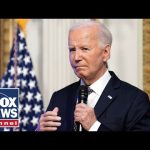The recent implementation of sweeping tariffs under the Trump administration has reignited fierce debates over their economic impact, with concerns ranging from inflation to the potential onset of a recession. While proponents argue that tariffs are a necessary tool to protect American industries and reduce reliance on foreign goods, critics warn that these measures function as hidden taxes on consumers, driving up prices and straining household budgets. The stakes are high, as the ripple effects of these policies are already being felt across markets and industries.
Economists predict that the tariffs will raise the average price level in the U.S. by 2-3% in 2025, translating to an effective “pay cut” for American households due to reduced disposable income. Lower-income families, who already spend a significant portion of their earnings on essentials like food and clothing, are expected to bear the brunt of these increases. This is particularly concerning as inflation remains elevated, with many families struggling to keep up with rising costs. Critics argue that while tariffs aim to bolster domestic manufacturing, they disproportionately harm consumers and small businesses by increasing costs across supply chains.
Small businesses, which form the backbone of the U.S. economy, are especially vulnerable to these trade policies. Unlike large corporations with diversified supply chains and greater financial flexibility, small enterprises often operate on razor-thin margins and rely heavily on imported goods or materials. Tariff-induced cost increases leave them with few options: raise prices, cut jobs, or risk going under. This dynamic could stifle innovation and entrepreneurship at a time when the economy is already showing signs of slowing growth.
Supporters of the tariffs contend that short-term pain is necessary for long-term gain. They argue that these measures will incentivize companies to bring manufacturing back to the United States, creating jobs and reducing dependency on adversarial nations like China. President Trump has framed his tariff strategy as part of a broader “America First” economic agenda aimed at revitalizing domestic industries and rebalancing trade relationships. However, even some conservative economists caution that the abrupt nature of these policies could disrupt markets and undermine investor confidence before any benefits materialize.
The broader economic implications remain uncertain, but fears of a recession are mounting. Major financial institutions have increased their forecasts for an economic downturn, citing declining consumer confidence and volatility in financial markets as key indicators. While the administration maintains that these tariffs will strengthen America’s economic position in the long run, critics argue that their immediate effects—higher prices, strained businesses, and potential job losses—could outweigh any future gains. As this debate unfolds, Americans are left grappling with whether the costs of this trade war are worth its uncertain rewards.




